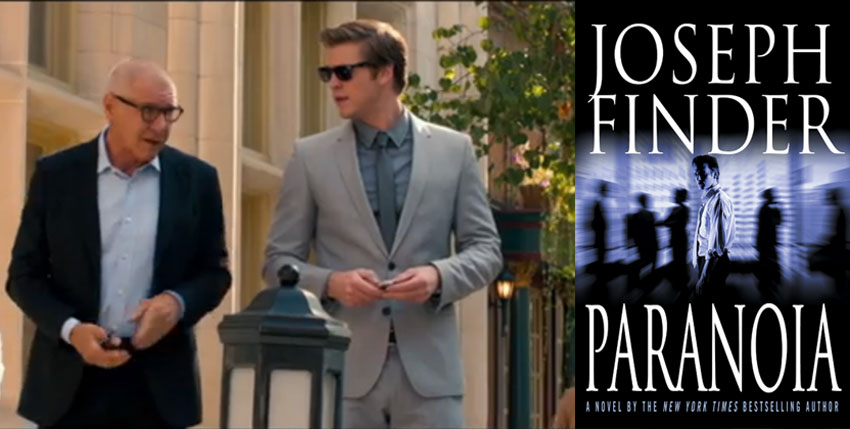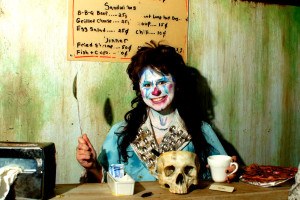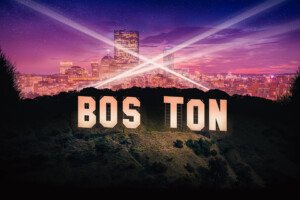Why Boston’s Not So Far Removed from the World of the ‘Paranoia’ Movie
Joseph Finder is a Boston-based suspense novelist who’s earned notoriety for his tales of KGB plots and corporate espionage. Finder’s 2004 bestseller Paranoia is now a Hollywood movie in theaters starring Liam Hemsworth, Harrison Ford, and Gary Oldman. In an interview, Finder, who also wrote the book High Crimes, later a film with Morgan Freeman and Ashley Judd, tells us why Boston isn’t as far removed from Paranoia‘s world of private sector spying as you might think.
——
ER: The book came out in 2004. And now it’s 2013. What’s happened in between?
JF: Hollywood. It’s the development process. The usual. I actually sold to Hollywood before the book was published, but then the guy who had acquired it got fired and then moved to another studio. It was just one thing after another, which is a typical Hollywood story. And then a French company Gaumont optioned the rights for it a few years ago, and I said okay. And they sold it to Relativity and all of a sudden it became an American film. So it’s a tangled history.
It seems like there are some authors happy to cede to the professional screenwriters and some who can’t bear to let their work into someone else’s hands. You seem to fall into the former camp, but is it difficult watching someone else’s screenplay of your novel?
You know my basic policy is that no one put a gun to my head to make me sell the movie rights. No one forced me to cash that check. I sort of feel like if you’re going to sell it to Hollywood you don’t have the right to complain. They could screw it up or not.
I think I would like to try my hand at a script of the next movie whatever the next adaptation is. But I learned with High Crimes, whatever happens, it’s not going to be the book. Its going to be a lot different. Its going to be way shorter. They take a 400 page book and turn it into a 110 page script. They’re cutting stuff out. And even in the casting, things change. When I wrote the book, was Liam Hemsworth eight years old? I have no idea. [He was 14.]
Are there ever moments watching the movie where you think, “I wish I’d thought of that!”
That does happen once in awhile, where they do things that I wish I’d thought of. Not really in this case. The changes they made were all changes that were necessary or just what happens in the process. I knew there were characters in the book that weren’t going to make it into the movie. That’s actually kind of liberating.
But when you’re thinking about how they’re going to adapt it into a movie even as you’re writing the book, does that ever guide your decisions? Like, if there’s a character you know wouldn’t make the cut in the movie, do you ever think, “Why is it in the book?”
It’s an interesting question. On the one hand it exists as a movie in my mind as I’m writing the book. And yet when you’re writing a book, it’s almost like writing a season of television, where there’s a lot more material. So I will think of a character or scene, and I will know that it wouldn’t make it into the movie but to me that’s all the more reason to put it in the book because we get different pleasures in the book. I felt like it liberated me to write whatever I wanted to write in the form of a book.
Your previous work had been more focused on more traditional Le Carré type espionage. How’d you get into the world of company-on-company spying?
You know, I was trying to find a fresh way to write a story that hadn’t been done before. And I was sort of feeling that there’s a lot of people who do private eye novels, or police, FBI, and CIA, and I wanted something that basically hadn’t been done. I was talking to this guy in the CIA who was talking about the massive extent of private espionage. Espionage that goes on between companies. And I thought that would be kind of a cool subject matter. The thing about writing Paranoia that’s important in my own writing life is I decided to break as many rules as I could.
What do you mean by that?
My first agent made me cut out all the funny parts. He told me people don’t want funny in suspense. And he’s wrong. In Paranoia, I left all that stuff in, the snarky comments, etc. I did it in the first person, from the point of view of this slacker who is not a traditional suspense novel hero. And there’s hardly any bloodshed, or no bloodshed in the book. So I wanted to do that and say I’m going to break these traditional rules and do something that feels fresh.
Your research process almost resembles that of a journalist, right?
Right, I’ll start reading things. But mostly it’s interviewing. I’ll go to someone’s office and start interviewing them just as you would do with a longer piece for a magazine.
But on the other hand, it must be freeing to interview people when the things they say won’t appear in a magazine.
It’s great because you know how it is when you’re talking to people on the record for attribution. People kind of freeze up. They get really careful. When I’m talking to people and they know that I’m writing a novel, they just completely open up because they know that I’m not going to use their name. They’re not going to get in any trouble for anything they tell me.
These worlds of international espionage and corporate espionage kinda seem like they’re a long way from Boston. Do you take any inspiration at all from your home city?
That’s actually not true. Boston is such a technological center. And there are defense contractors in the area. And there are people who invent things that are actually really useful in weapons systems. So you can count on the fact that the Russians and the Chinese have people here trying to steal secrets. Absolutely. That’s a fact. People just don’t write about that very often. The Russians are still in the business of trying to steal secrets. The Chinese are trying to steal whatever secrets they can, either to improve their own weapons systems or to get a head start in a tech war with us. So even though people think Boston is kind of removed from that, it’s not true. Boston really is, in a lot of ways, the center.
Probably a lot of that spying is digital, at this point, right? It seems like that’s the way to go, rather than putting Liam Hemsworth in a suit and sending him to your enemy’s company.
Right, that’s actually kind of retro. It’s way easier to email someone and have them click on the link, and you’re in. But that is not so interesting to do on the screen. It’s boring.
But of course, you have the liberty to do your research and then punch it up.
Yes, I feel like my responsibility is to be plausible, not to be accurate.
How did you wind up in Boston. You didn’t grow up here, right?
In Boston? I didn’t, no. I came here to go to Harvard for grad school. I sort of think of Boston as the flypaper city. People move here for one reason or another, and they get stuck. So, I came here and just fell in love with the place like most people do.
What’s your pace like when you’re writing?
When I’m actually writing I generally try to shoot for 10 pages a day. There are some days when I’m writing the basic outline, the blueprint for the rest of the book. I sort of like to come up with a map of what the next book is going to be about, which then gives me permission to veer from it. In the case of Paranoia, the ending of the book was something I only thought of halfway through. I didn’t think of it starting out.
I’m always amazed when I hear an author say something like that. I think Gillian Flynn said the same thing about Gone Girl. Isn’t there a point where you panic that you don’t have an ending?
It’s funny but it’s true that what happens is when you’re writing a thriller, what you always want to do is defeat expectations. Take what your reader expects to happen and make a sharp left turn. So while you’re writing it and you’re thinking, yeah I know how this is going to end and everyone knows how it’s going to end, then an idea pops into your head, you think, alright this is going to surprise them because it surprises me. So that’s one reason I try to stay loose when writing a book.
Do you go somewhere to work?
I cannot write at home. Sitting around in your pajamas? God I’d hate that. No, I’ve got an office a couple blocks from my home in Boston. And even here in Cape Cod I’ve got a studio which is a separate building down the hill from our house.
You’ve been participating in a lot of the movie publicity, but of course, the book is 10 years old. Did you have to re-read it?
So literally, I finished all work on the book 10 years ago. So there’s plenty of it I’ve forgotten. I didn’t have to re-read the book, though, because the movie was so different. I had to see the movie.



